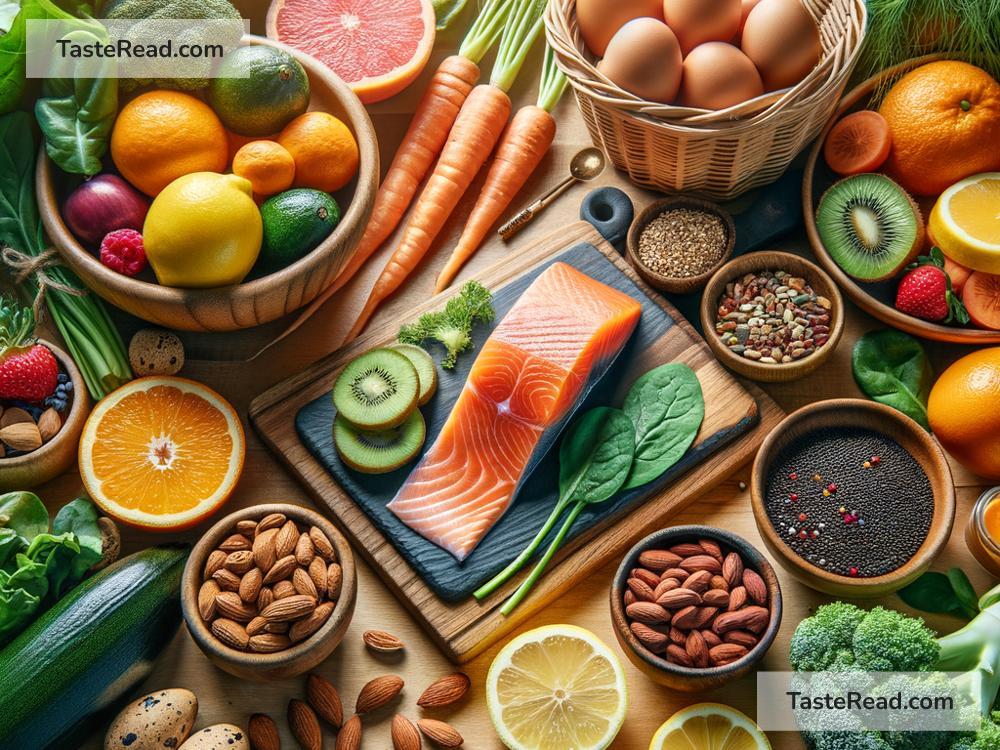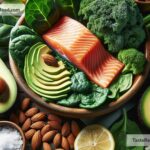Foods That Support Peripheral Vision: Nourishing Your Eyes for Better Health
Peripheral vision is your ability to see things outside your direct line of sight—those objects and movements you notice at the edges of your vision. It plays an important role in activities like driving, playing sports, or simply walking without bumping into obstacles. Protecting your eyes and maintaining good vision is vital because as we age, or due to certain health conditions, we may experience a decline in visual performance. Did you know that your diet can help support your eyesight, including your peripheral vision? Eating the right foods can strengthen your eyes and reduce the risk of vision problems. In this blog, we explore some key foods packed with nutrients to support your peripheral vision and overall eye health.
Why Does Nutrition Matter for Your Eyes?
The eyes are complex organs that depend on nutrients like vitamins, minerals, and antioxidants to function properly. A poor diet can lead to deficiencies that negatively impact your vision, including peripheral vision. Nutrients such as Vitamin A, Vitamin C, Vitamin E, zinc, lutein, and omega-3 fatty acids help maintain the health of your retina (the thin layer of tissue at the back of the eye) and protect against damage from aging, oxidative stress, and harmful UV rays.
Eating the right foods can:
1. Strengthen the retina.
2. Improve blood flow to the eyes.
3. Protect against vision-related conditions, like glaucoma and macular degeneration, which may compromise peripheral vision.
Below is a list of foods that are particularly beneficial for your eyes.
1. Carrots: A Classic Vision Booster
Carrots are famous for their eye health benefits, and for a good reason! They are rich in beta-carotene, a type of Vitamin A that helps maintain healthy vision. Vitamin A is essential for the functioning of the retina, including the cells responsible for peripheral vision. Regular consumption of carrots can help your eyes see better in low-light conditions and promote overall visual clarity. Snack on carrots raw or toss them in your salads and soups for an easy nutrient boost.
2. Spinach and Kale: Leafy Greens for Eye Protection
Leafy greens like spinach and kale are rich in lutein and zeaxanthin, two powerful antioxidants that help filter harmful light and protect the retina. These nutrients are crucial for safeguarding the peripheral vision and preventing damage caused by oxidative stress. Include these greens in smoothies, salads, or stir-fries to give your eyes some much-needed nourishment.
3. Citrus Fruits: Vitamin C for Strong Eyes
Oranges, grapefruits, lemons, and other citrus fruits contain high levels of Vitamin C. This vitamin is important for strengthening blood vessels in the eyes and reducing oxidative damage. Peripheral vision depends on healthy blood circulation in your eyes, and Vitamin C-rich fruits contribute to improved flow and immunity for your visual system. Enjoy these fruits fresh or squeeze them into juices for a refreshing treat.
4. Fish: Omega-3 Fatty Acids for Eye Health
Fatty fish like salmon, mackerel, and sardines are excellent sources of omega-3 fatty acids, which are essential for maintaining eye health, including peripheral vision. Omega-3s support the functioning of the retina and reduce inflammation, which can affect vision over time. Regular consumption of fish helps protect against conditions like glaucoma and dry eyes, both of which may impact your peripheral vision.
If you’re vegetarian or vegan, you can get omega-3s from flaxseeds, walnuts, or chia seeds.
5. Sweet Potatoes: More Beta-Carotene for Your Vision
Like carrots, sweet potatoes are rich in beta-carotene and Vitamin A, making them another fantastic food for enhancing your peripheral vision. Sweet potatoes are also packed with Vitamin C and E, addressing oxidative stress and promoting overall eye health. Bake them, mash them, or turn them into fries—they’re as versatile as they are healthy.
6. Eggs: A Multifunctional Superfood
Egg yolks contain lutein and zeaxanthin, which help protect the retina, as well as zinc, which is important for maintaining sharp vision. Eggs are an affordable and versatile option for supporting your eyes. Whether scrambled, boiled, or in a breakfast muffin, eggs are easy to incorporate into your diet.
7. Nuts and Seeds: Eye-Friendly Fats
Almonds, walnuts, sunflower seeds, and flaxseeds are rich in Vitamin E and omega-3 fatty acids. Vitamin E plays a crucial role in defending your eyes against damage caused by free radicals, while omega-3s promote blood flow to your retina—important for your peripheral vision. Keep a handful of nuts or seeds handy as a snack or sprinkle them over your meals.
8. Blueberries: Tiny Berries, Big Benefits
Blueberries are loaded with antioxidants, including Vitamin C and anthocyanins, which improve blood circulation and protect the eyes from oxidative damage. Improved circulation supports the functioning of your retina and helps maintain sharp peripheral vision. Regular consumption of blueberries can decrease the risk of age-related vision decline.
9. Peppers: Bright Colors, Bright Vision
Bell peppers, particularly red and yellow ones, are high in Vitamin C and zeaxanthin. These nutrients play a role in reducing eye strain and protecting the retina from damage. Add them to stir-fries, salads, or snack on them raw to enjoy their eye-nourishing benefits.
Final Thoughts
Your diet has a direct impact on your eye health, and consuming foods rich in vitamins, antioxidants, and omega-3s can help maintain your peripheral vision for years to come. Including a variety of colorful fruits, vegetables, nuts, and fish in your meals ensures that your eyes receive the nutrients they need. Beyond diet, don’t forget to protect your eyes with sunglasses when outdoors, stay hydrated, and give your eyes regular breaks from screens.
By eating the right foods, you can pave the way for healthier eyes and sharper peripheral vision—helping you navigate the world with confidence and clarity. Start including these foods in your daily routine today, and give your eyes the care they deserve!


